Philosophy as we know it today has deep roots that span millennia, with each era bringing its own questions, answers, and influential thinkers. In this article, we will embark on a journey through time, exploring philosophical eras from antiquity to the present day, highlighting prominent philosophers and their significant contributions to the world of thought.
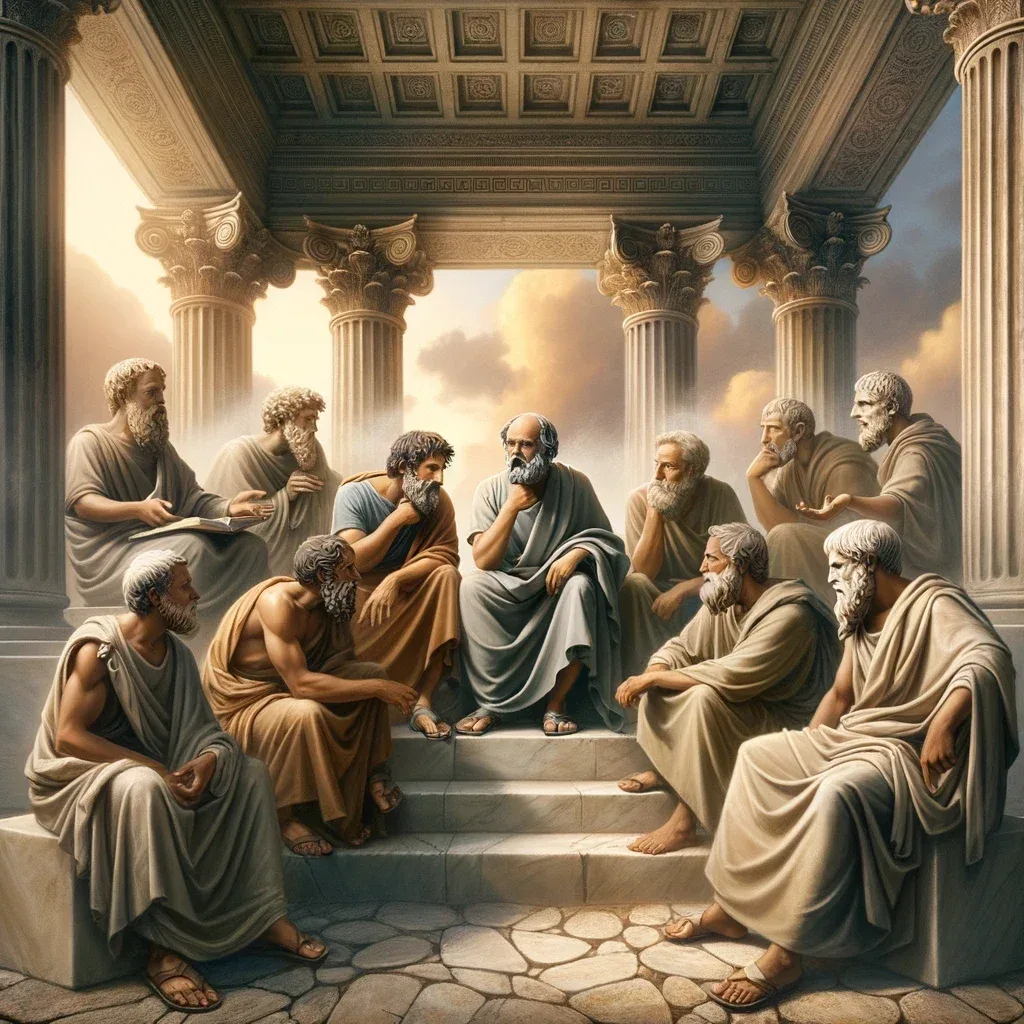
Ancient Philosophy (c. 600 BC – 500 AD)
Ancient philosophy marks the birth of philosophical thought, mainly in Greece and Italy. This period was fertile ground for the emergence of ideas that continue to shape philosophical thought to this day.
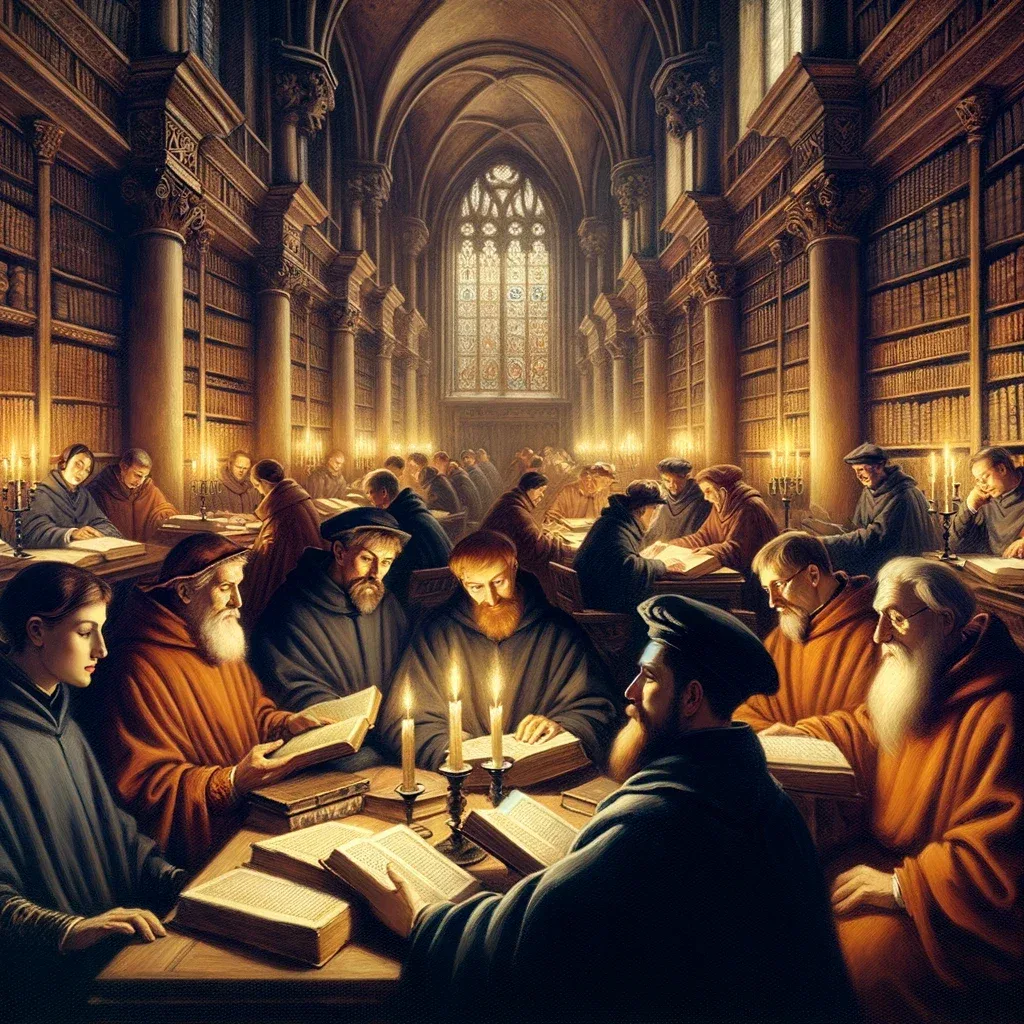
Pre-Socratics (c. 600 BC – 400 BC)
The pre-Socratic philosophers, as the name suggests, preceded Socrates and were primarily concerned with the nature of the universe and the origin of all things. Philosophers such as Thales of Miletus, Anaximander, and Heraclitus explored questions about the primordial substance of the universe and the nature of being.
The Presocratics laid the foundation for philosophical inquiry, moving beyond mythological explanations to a more rational and logical understanding of the world. His inquiries into the nature of reality formed the basis for the subsequent development of natural philosophy and metaphysics.
Socratic Era (c. 469 BC – 399 BC)
Socrates is often seen as a watershed in the history of philosophy, turning attention from the cosmos to ethical and epistemological questions. His dialectical method of questioning encouraged critical thinking and the search for truth.
In addition to Socrates, other important philosophers of this period include Plato and Aristotle. Plato, a disciple of Socrates, founded the Academy in Athens and wrote extensively on ethics, politics and epistemology. Aristotle, a disciple of Plato, made significant contributions to several areas of philosophy, including logic, metaphysics, ethics, and politics.
Medieval Philosophy (c. 500 AD – 1500 AD)
Medieval philosophy saw the fusion of Greco-Roman philosophical ideas with Judeo-Christian religious traditions. This period was marked by intense theological and philosophical discussions.
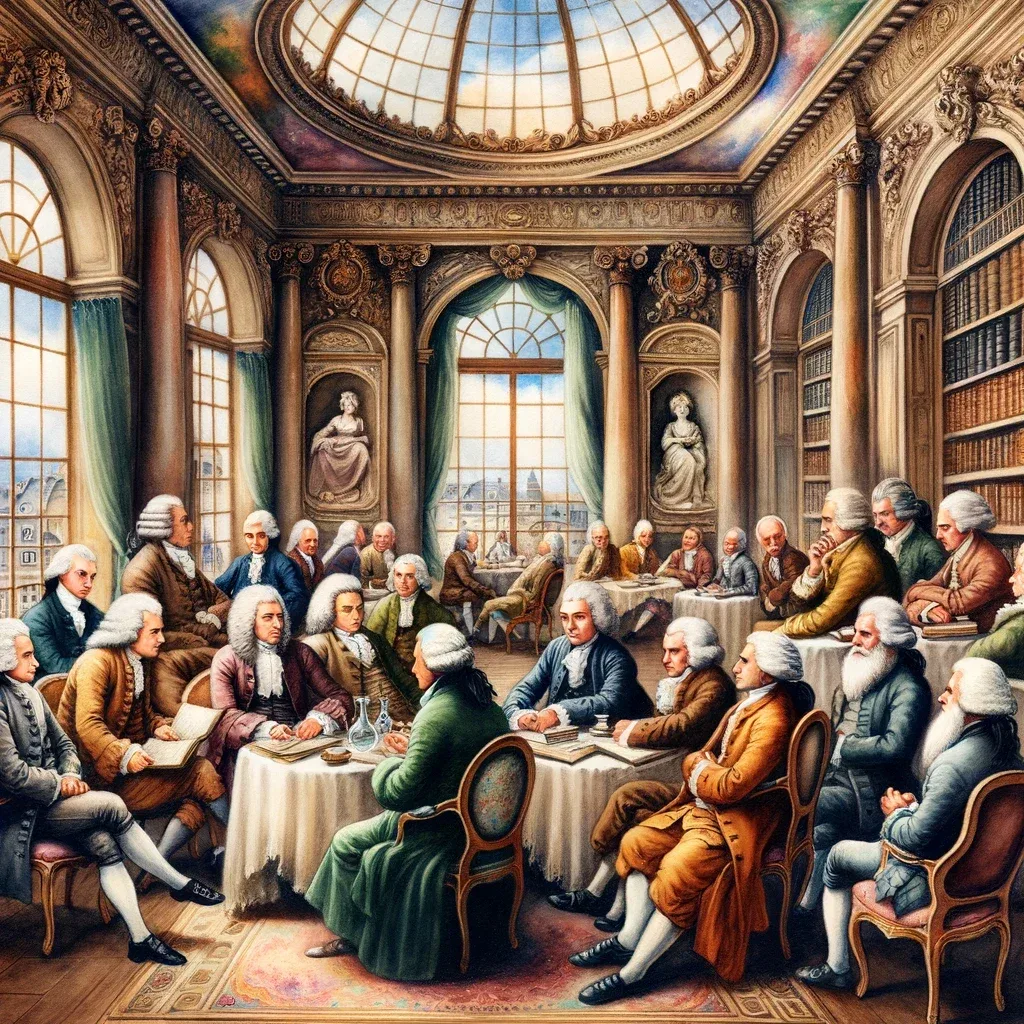
Patristics and Scholasticism
Church Fathers, such as Saint Augustine and Saint Thomas Aquinas, worked to integrate Greco-Roman philosophy with Christian theology. Saint Augustine is known for his exploration of the nature of sin and grace, while Saint Thomas Aquinas is celebrated for his synthesis of Aristotelian philosophy with Christian theology.
Scholasticism, a movement that followed Patristics, continued the tradition of integrating philosophical reason with divine revelation. Scholastic philosophers such as Duns Scotus and William of Ockham contributed to the development of logic, metaphysics and epistemology, laying the foundations for the modern philosophy that would follow.
Modern Philosophy (c. 1500 – 1800)
Modern philosophy has witnessed a break with medieval tradition and a new emphasis on rationalism, empiricism and individualism.
Rationalism and Empiricism
Rationalist philosophers such as René Descartes, Baruch Spinoza, and Gottfried Wilhelm Leibniz emphasized the importance of reason as the main source of knowledge. They explored questions of metaphysics, epistemology, and the nature of the mind.
On the other hand, empiricists such as John Locke, George Berkeley, and David Hume argued that sensory experience is the primary source of knowledge. They questioned notions of substance, causality and the relationship between mind and body.
Contemporary Philosophy (c. 1800 – Present)
Contemporary philosophy has seen the flowering of a variety of philosophical schools and movements, exploring complex questions of existence, knowledge, ethics and politics.
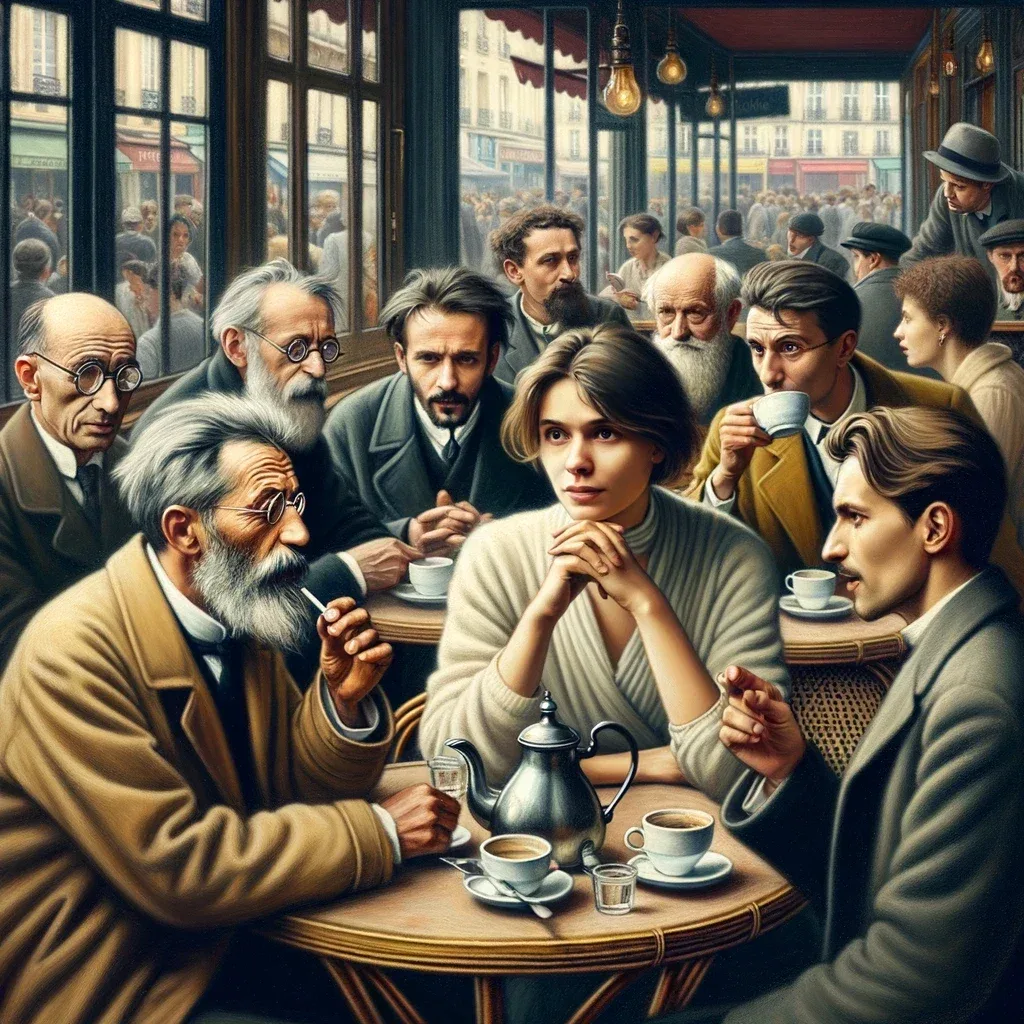
Existentialism and Phenomenology
Existentialism, with philosophers such as Søren Kierke
gaard, Friedrich Nietzsche, Jean-Paul Sartre and Simone de Beauvoir, explored the nature of human existence and the search for authenticity. Phenomenology, led by Edmund Husserl and Martin Heidegger, focused on direct experience and perception as the basis for understanding.
Analytical Philosophy and Postmodernism
Analytical philosophy, predominant in the Anglo-Saxon world, prioritizes logical and linguistic analysis, with philosophers such as Bertrand Russell, Ludwig Wittgenstein and Willard Van Orman Quine making significant contributions. Postmodernism, with thinkers such as Michel Foucault, Jacques Derrida and Jean-François Lyotard, questioned grandiose narratives and explored the structures of power and discourse in contemporary society.
The timeline of philosophy is a rich tapestry of ideas, debates, and inquiries that continue to shape our understanding of the world and our place in it. By revisiting the thinkers and ideas that marked each era, we gain a deeper appreciation of humanity's ongoing journey in search of knowledge, understanding, and wisdom.
FAQ: Philosophy Timeline
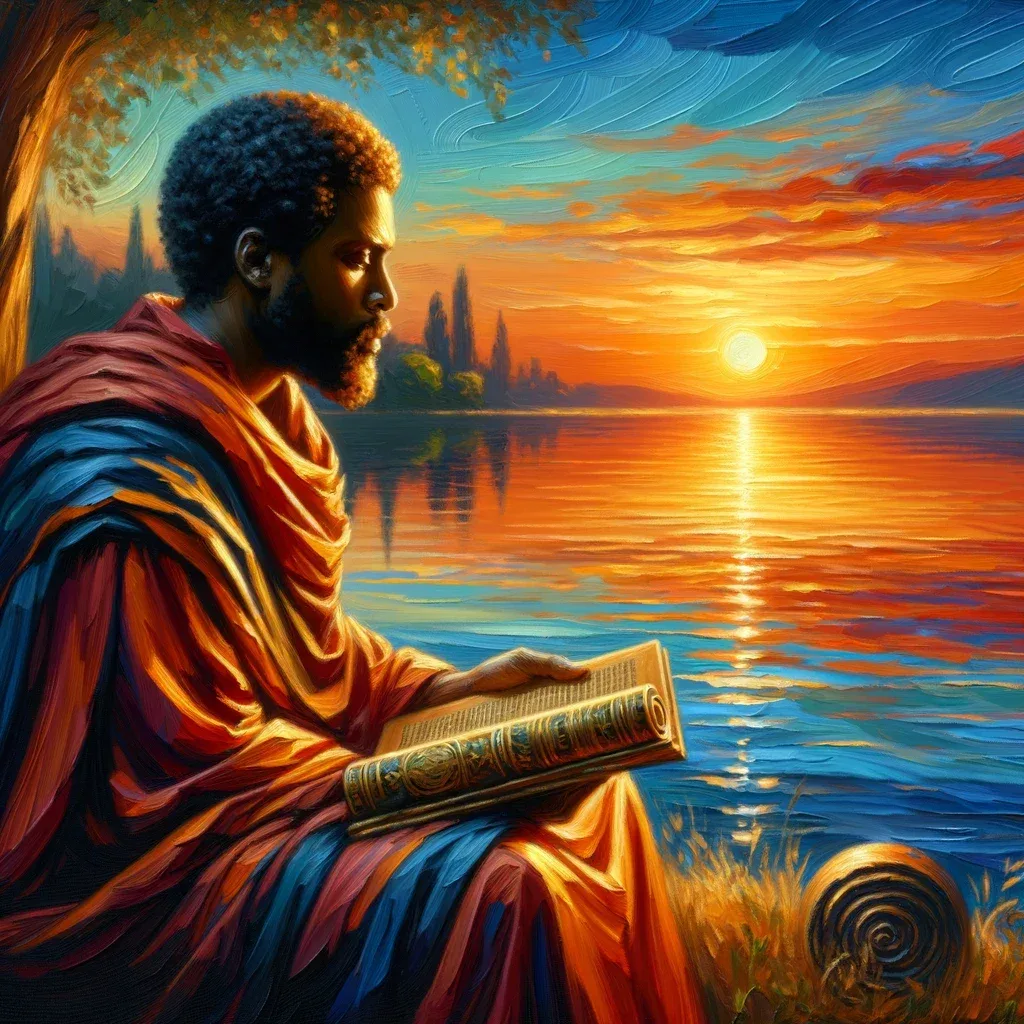
1. What are the main eras of philosophy?
The main eras of philosophy are Ancient Philosophy (c. 600 BC – 500 AD), Medieval Philosophy (c. 500 – 1500 AD), Modern Philosophy (c. 1500 – 1800) and Contemporary Philosophy (c. 1800 – Present). Each era is characterized by different schools of thought, prominent philosophers, and prevailing philosophical themes. Ancient Philosophy, for example, was marked by the exploration of the nature of being and reality, while Modern Philosophy saw a movement towards rationalism and empiricism.
The transition between these eras often reflects significant changes in philosophical thought and historical and cultural circumstances. For example, the transition from Medieval to Modern Philosophy was marked by a renewed interest in humanism, science, and a critical reappraisal of medieval traditions.
2. Who were the pre-Socratic philosophers and why are they important?
Presocratic philosophers were the first philosophical thinkers of Ancient Greece, who lived before Socrates. They include figures such as Thales of Miletus, Anaximander, and Heraclitus, and were primarily concerned with cosmological and metaphysical questions, such as the nature of reality and the origin of the universe.
They are important because they represent the beginning of philosophical inquiry in the Western world. His attempts to understand the world through reason rather than myth laid the foundation for the development of science and philosophy. Furthermore, his ideas about the nature of reality continue to influence philosophical and scientific thought to this day.
3. What was Socrates' contribution to philosophy?
Socrates is considered one of the pillars of Western philosophy. He is known for his dialectical method of questioning, which aims to clarify ideas and concepts through a process of questioning and responding. Socrates turned the attention of the philosophy of nature to ethical and epistemological questions.
Socrates' contribution to philosophy is immense; he not only influenced his contemporaries but also established a philosophical legacy that continues to reverberate through the centuries. His Socratic method of inquiry continues to be a powerful tool for critical thinking and the search for truth.
4. How did philosophy evolve from the medieval era to the modern era?
The transition from the medieval to the modern era in philosophy was marked by a break with the medieval scholastic tradition and a new emphasis on rationalism, empiricism, and individualism. Modern philosophers such as René Descartes and John Locke have placed a new emphasis on reason and experience as sources of knowledge, in contrast to the authority of divine revelation and tradition that predominated during the medieval era.
Furthermore, the development of modern science and Renaissance humanism also played crucial roles in shaping modern philosophy. The evolution of philosophical ideas reflected the cultural, scientific and political changes of the time, leading to new ways of inquiring and understanding the world.
5. Who are some of the prominent philosophers of the contemporary era and what were their main contributions?
The contemporary era has seen the emergence of a variety of philosophical schools and movements. Existentialist philosophers such as Jean-Paul Sartre and Simone de Beauvoir explored questions of existence, freedom, and authenticity. On the other hand, analytic philosophers such as Bertrand Russell and Ludwig Wittgenstein made significant contributions to logic and the philosophy of language.
Furthermore, postmodernism, with thinkers such as Michel Foucault and Jacques Derrida, challenged the grand narratives of modernity and explored the structures of power and discourse in contemporary society. Each of these philosophers and movements brought new perspectives and methods of inquiry to philosophy, expanding the scope and depth of philosophical inquiry.






